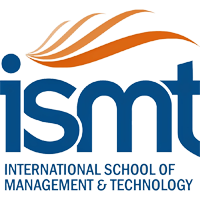Overview
For the first time, TU School of Mathematical Sciences is going to lunch Bachelor in Mathematical Sciences (BMathSc) Program.
The program is full time, of 8 Semesters in 4 years in duration. Bachelor in Mathematical Sciences courses basically comprises of some compulsory foundation courses consisting of fundamentals of Mathematics, Statistics, and Computer Science and Information Technology plus some elective courses from a list of courses which may vary from year to year as a multi-exit model decided by the subject committee. There will also be some courses covering Technical Writing Communication English, Humanities and Social Sciences, Management, Natural Sciences not related with the area of concentration taken.
Total Credit hours: At least 120 cr. Hrs.
Number of Courses: The first FOUR semesters will offer five courses each. The number of courses in the remaining semesters may vary.
Nature of Courses: Theoretical, Practical.
Eligibility: A candidate who has passed HSEB (10+2) from any stream with Mathematics of 100 marks or Business Mathematics or equivalent is eligible to get admission through entrance examination.
Marking: Semester Exam – 60% (End of the semester exam. 60 marks)
Internal Assessment : 40%
(The internal assessment may include writing test, oral test, seminar, practical, project work, field work etc. In each of the semester Exam and Internal Assessment, the student must secure at least 40% in order to complete the course.)
The first two years of the program provide a foundation in a broad range of areas including Mathematics, Statistics and Computer Science.
The Structure of the program is as follows
| Semester | Papers | Credit |
| First | MSMT 101 Calculus with Analytic Geometry I | 3 |
| MSST 101 Statistics & Data Analysis I | 3 | |
| MSCS 101 Fundamentals of Computer Science | 3 | |
| MSEN 101 Communication skill I | 3 | |
| MSCS 102 Mathematics Software (MATLAB) | 3 | |
| Total | 15 | |
| Semester | Papers | Credit |
|
Second |
MSMT 151 Calculus with Analytic Geometry II | 3 |
| MSMT 152 Linear Algebra with Application I | 3 | |
| MSST 151 Statistics & Data Analysis II | 3 | |
| MSCS151 Introduction to Programming I | 3 | |
| MSEN 151 Communication Skill II | 3 | |
| Total | 15 | |
| Semester | Papers | Credit |
|
Third |
MSMT 201 Linear Algebra with Application II | 3 |
| MSST 201 Theory of Probability | 3 | |
| MSCS 201 Introduction to Programming II | 3 | |
| MSMT 202 Differential Equations | 3 | |
| MSMT 203 Gen. Logic | 3 | |
| Total | 15 | |
| Semester | Papers | Credit |
|
Fourth |
MSST 252 Mathematical Statistics | 3 |
| MSST 251 Applied Probability Models | 3 | |
| MSCS 251 Data Structure and Algorithm | 3 | |
| MSMT 252 Mathematical Modeling | 3 | |
| MSMT 253 Discrete Math | 3 | |
| Total | 15 | |










